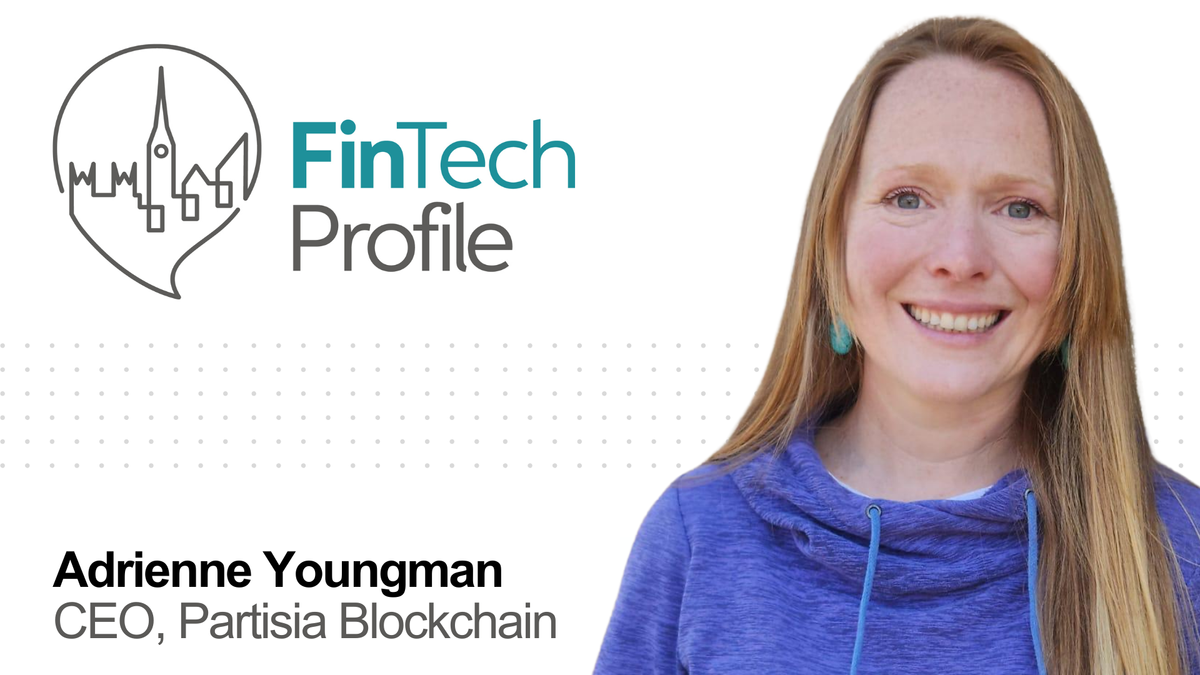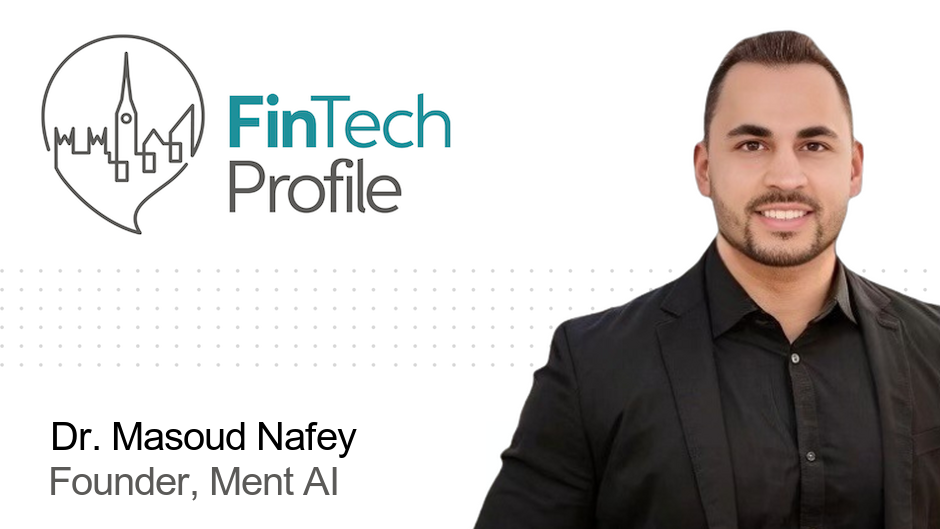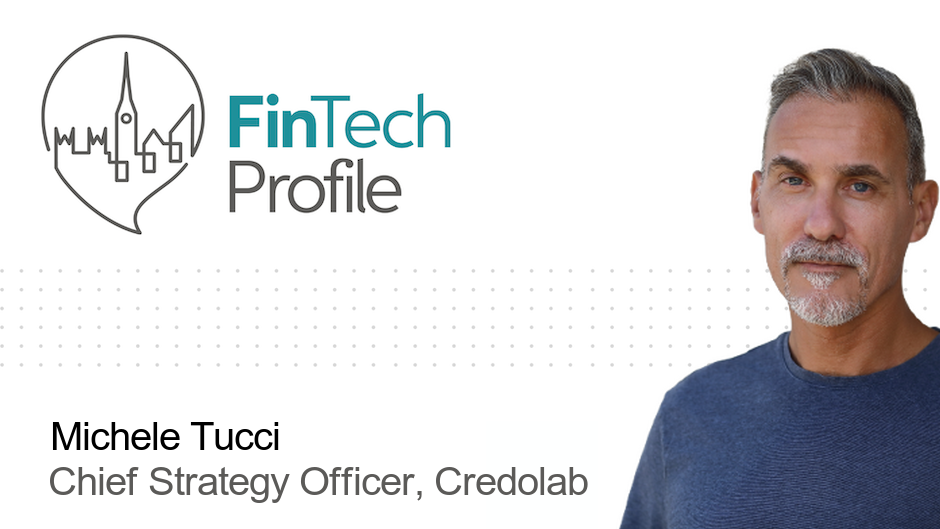Adrienne Youngman, CEO, Partisia Blockchain

I am delighted to be bringing you this interview with Adrienne (Adz) Youngman, CEO of Partisia Blockchain. The team at Partisia Blockchain is building the future of blockchain technology by transforming how we manage data in the same way that Bitcoin transformed money.
Over to you Adrienne - my questions are in bold:
Who are you and what's your background?
I fell into FinTech by accident. Drawn in by ideology.
It all started when I was a child.
I was born on the west coast of Ireland to two teachers. When I was 3, we moved to rural Zimbabwe because the country needed teachers. We moved back to Ireland when I was 6 and then on to England when I was 10. By the time I was 21, I was the first student from my Croydon state school to graduate from Cambridge University.
In those 21 years of life, I was exposed to many different ways of living it.
Part of many different worlds. Belonging fully to none of them.
Thanks to university, my early career path was charmed: management consulting, brand and business strategy, and then global brand management.
But I always wondered what lay over the horizon.
That niggling question niggled me more and more until I broke out and found my way to Mongolia, where my newly-wedded husband and I started a business. We built it from the ground up, grew a fantastic team and client base, went on to build another in Singapore, and later sold both.
Most of you reading this have probably lived very different but equally charmed lives. Part of a system that looks after us as long as we play the game. It looks after us because we sustain it, but you and I will probably never break into that tiny elite that enjoys entrenched security. Our fortunes rise and fall with each generation. And our experience would have been dramatically different had we been born in a different country.
This world order is underpinned by the traditional financial system.
So, when I became aware of technology that could transform these systems and unlock a tidal wave of innovation, I was naturally curious.
Blockchain technology is an alternative ledger (or database) that cannot be tampered with and that anyone can use. It enables a record of ownership and an ability to transfer that ownership. Nobody has to apply for access. It’s global and offers speed-of-light finality. It has enabled a tsunami of innovation.
Curiosity about this drew me into my little corner of FinTech.
What is your job title and what are your general responsibilities?
I’m CEO of Partisia Blockchain Foundation, where I lead a team to drive awareness and adoption of a groundbreaking protocol that enables data privacy and compliance alongside the speed and transparency of blockchain technology.
I act as a bridge to the development company, ensuring that the product meets the emerging needs of a growing ecosystem and customer base. Those customers are primarily concerned with on-chain finance, digital identity, AI, and data flows.
My direct team covers marketing, developer relations, community management, and adoption.
Can you give us an overview of your business?
Partisia is a Swiss data privacy protocol, powering solutions for on-chain finance, digital identity, and data flows in an age of AI.
Until now, society’s approach to data sharing has been binary. We either share information in its entirety, forever, or we don’t. If we ‘do’, the information is effectively not ours anymore. If we ‘don’t’, we lose out on innovation and opportunity. This very simplistic approach applies equally to companies looking to partner with each other, individuals signing up for new products/services, people prompting AI models with personal data, etc.
It has been a binary choice - give it away in order to play, or miss out.
That choice was even more extreme in Web3, where data is not only disclosed to a counterpart but made public on-chain forever.
Transparency—which was core to the first evolution of blockchain—has prevented mainstream adoption of public blockchains. Instead, financial institutions have opted to build pockets of private blockchains to maintain the security of confidential information while benefiting in part from the technology.
The addition of Privacy Enhancing Technologies (PETs) to public blockchains is the next evolution. Enabling financial enterprises to also utilise public blockchains while shielding confidential information. Maintaining regulatory compliance and auditability, on blockchains that are open and connected.
Our founders have been pioneering these technologies since 1988. That was when Ivan Damgard published his first paper on Multi-Party Computation. Prior to that, he co-invented the Merkle-Damgard hash function, underpinning the development of a secure internet and most modern cryptographic protocols.
For the last 16 years, our development company has used these technologies to build commercial solutions for entities like the Danish government, Bosch, and the International Red Cross.
We are leading the next evolution of blockchain technology.
Building on the existing strengths while empowering you to manage data flows with elegance, trust, and integrity.
Tell us how you are funded?
Partisia Blockchain was launched on May 31st 2022 with a Token Generation Event. Shortly after, a public sale finalized the initial fundraising and brought the total funds raised to approximately USD 54,2 million.
What’s the origin story? Why did you start the company? To solve what problems?
Today, data flows everywhere. Stored in databases and systems across the globe. Subject to data breaches that cost companies an average of $5m per breach globally and $10m per breach in the USA. Financial costs, but also reputational costs, have been known to drag companies under.
This approach was dangerous in a world where the sheer volume of data available made it hard for all but the most sophisticated operators to use it. Advances around AI and quantum computing make it increasingly untenable.
Privacy-enhancing technologies enable secure interaction with data for a specific purpose without exposing the data itself. As a company or individual, all you need to know is that your data never leaves your domain or device in a readable format, and yet others can get the information or insight that they need.
In addition to enabling financial institutions to maintain confidential information while interacting with public blockchains, it also transforms areas like digital identity, identity verification (RegTech), and privacy-preserving AI.
Improving data security while also enabling better UX by enabling smart contract interactions that remove manual processes.
Who are your target customers? What’s your revenue model?
Our revenue model is based on transaction fees as people use our technology.
Our development company, Partisia Inc., offers a service to build custom solutions spanning both public and private blockchains. Partisia Blockchain provides direct support to customers building their own solutions on our blockchain.
If you had a magic wand, what one thing would you change in the banking and/or FinTech sector?
I would extend it. I would broaden inclusion to demographics that currently don’t have access, both within our developed nations but also across the huge expanse of emerging markets.
What is your message for the larger players in the Financial Services marketplace?
That they should be at the heart of this next evolution of blockchain technology.
That the technology is now ready for them.
Where do you get your Financial Services/FinTech industry news from?
I typically use X to source the latest news from within the FinTech community, including thought leaders like Chris Dixon, Raoul Pal, and David Hoffman, and media outlets like CoinDesk, Bankless, Finextra and TechCrunch.
Can you list 3 people you rate from the FinTech and/or Financial Services sector that we should be following on LinkedIn, and why?
- Caitlin Long, founder and CEO of Custodia Bank and a pioneer in the blockchain and digital asset space.
- Kristin Smith, Executive Director of the Blockchain Association representing more than 100 of the industry’s leading companies and bridging policy-markers and industry.
- Anne Boden from Starling Bank in the UK, was the first woman to found an independent bank in 2014.
What FinTech services (and/or apps) do you personally use?
- Gnosis Pay: https://gnosispay.com/ - the world's first self-custodial Visa Debit Card, enabling you to spend cryptocurrencies like you spend cash and get up to 5% cashback.
- Wise: https://wise.com/ - save on international transfers in over 50 currencies without any hidden fees.
What’s the best new FinTech product or service you’ve seen recently?
- Zar Pay: https://www.zarpay.app/ - Bridging the gap between cash-based economies and web3, accelerating stablecoin adoption for those who need it most.
Finally, let's talk predictions. What trends do you think are going to define the next few years in the FinTech sector?
The next few years will see early movers benefiting disproportionately from the next evolution of blockchain technology: including privacy-preserving on-chain finance, truly interconnected global systems built on blockchain, and the next era of programmable money.
Thank you so much for taking the time to participate Adrienne (Adz) Youngman.
You can follow Adrienne (Adz) Youngman on LinkedIn and find out more about her company Partisia Blockchain at https://partisiablockchain.com/.




